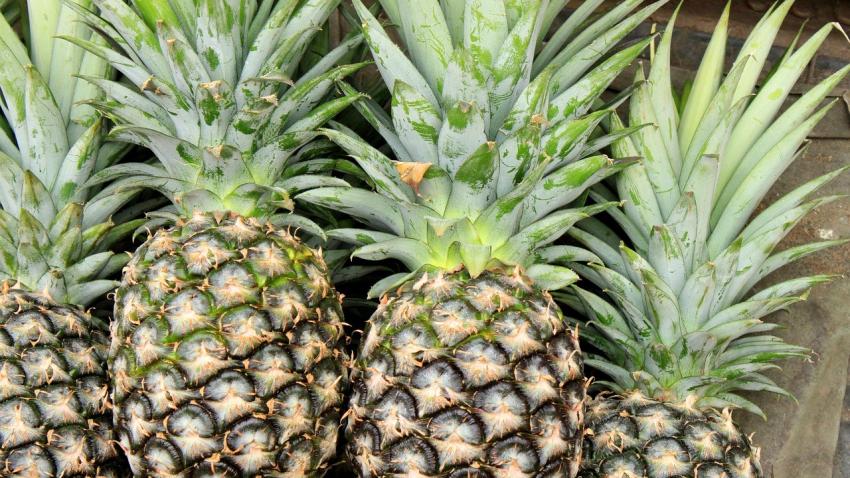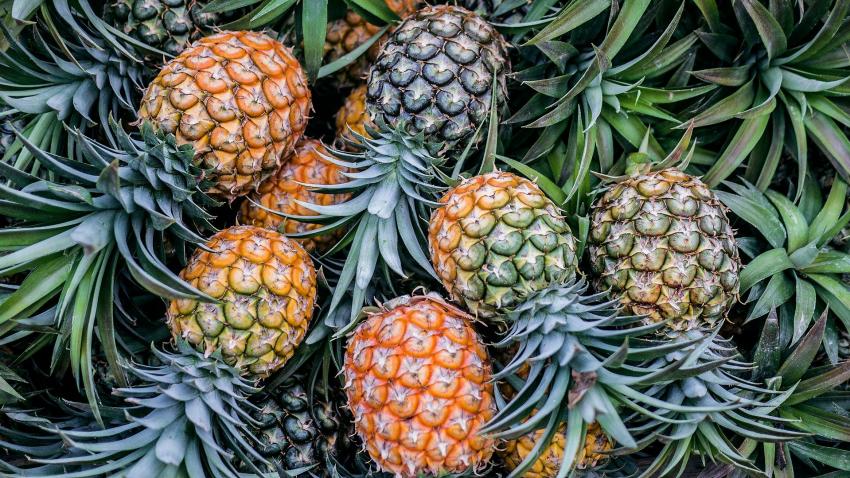You are here
Back to topChinese Pineapple Prices Skyrocket Following Import Restrictions

The recent news of halted pineapple shipments from Taiwan to mainland China has received substantial attention online, adding fuel to China’s already hot pineapple market. The phrase “one out of every three Chinese pineapples comes from Xuwen,” a county in southwest Guangdong province, was at one point the second most trending topic on Weibo. Even prior to the recent import restrictions, prices were already exceeding those in previous years, averaging 2 Chinese yuan per jin ($0.61 per kilogram). At the beginning of March, prices rose to 3 yuan per jin ($0.92 per kilogram), marking a 30-year high.
Currently, there are many different types and grades of pineapples sold within China. High-quality, fresh pineapples weighing 1.5 jin (0.75 kilograms) or more are typically priced at 3 yuan per jin ($0.92 per kilogram), while those weighing 1.3 jin (0.65 kilograms) or more typically sell for 2.5 yuan per jin ($0.77 per kilogram). Prices per kilogram generally increase with the weight of the fruit, with larger pineapples fetching higher prices.
Xuwen Pineapples
This year, Xuwen pineapples hit the market approximately 15 to 20 days later than usual owing to changes in the planting time and weather patterns. This year’s total production is also anticipated to be somewhat lower than average. During the second half of 2020, Xuwen experienced a prolonged dry season with very little rainfall and no extended periods of low temperatures. Together these factors allowed Xuwen’s pineapples to avoid the undesirable physiological disorder of blackheart and maintain their pristine quality and texture, resulting in a product even sweeter than previous harvests.
Xuwen is home to 13 standardized pineapple planting demonstration bases, and it is also the place where the bulk “Bali” pineapple variety was developed and refined. Other first-rate pineapple cultivars have also been promoted, such as the Golden, Sweet Honey and Gold Diamond varieties, and 12,000 mu (1,980 acres) of fields have been planted with these new pineapple varieties.
According to weekly statistics provided by Yimutian, an agricultural e-commerce platform, Xuwen accounts for 12% of the Chinese wholesale pineapple market. From the beginning to the end of February, the price of Xuwen pineapples climbed steadily upwards, hitting a peak of 2.9 yuan per jin ($0.89 per kilogram). Looking at the overall wholesale market, prices fluctuated during the third and fourth weeks of February, first rising and then falling. At their peak, prices hit approximately 3.5 yuan per jin ($1.08 per kilogram). Expert analysis shows that with increased purchase prices, the profits of large buyers fall, lowering purchasing enthusiasm. It is predicted that with an increase in bearing acreage, purchase prices will decrease and the profits of buyers will increase, causing the market to gain steam.
New Advertising Campaigns

At the beginning of this year, Chinese pineapple marketers began to adopt new types of advertising campaigns, such as a “Xuwen Pineapple” branded high-speed rail line. This express line crosses through 14 Chinese provinces and multiple large Chinese cities, including Beijing, Shanghai, Gansu, Shaanxi, Hubei, Zhejiang, Guangdong and Anhui, spreading the Xuwen pineapple brand from the southernmost tip of China out to the entire country with a total of 22 trips each day.
China is one of the world’s largest pineapple producers. Among the production bases in China, Guangdong province is the largest, with significant production also taking place in Hainan and Guangxi. Most pineapple production in China is highly concentrated in several key regions. In particular, Xuwen County has over 300,000 mu (49,000 acres) of pineapple production, and two of its towns, Qujie and Jinhe, are home to over half of this total planting acreage.
Images: Pixabay
This article was translated from Chinese. Read the original article.

















Add new comment